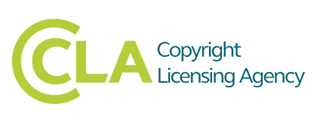Six key facts about the CLA licence
By Christina Daouti, on 13 September 2023
The Copyright Licensing Agency (CLA) licence for photocopying, scanning and digital re-use is a bit of a mouthful. It is also one of the main means to stay within the law when re-using copyright-protected materials, particularly in teaching.
A CLA poster is displayed next to MFDs at every UCL library site and in departments. This is expected by the CLA and helps you know what you are allowed to do under the terms of the licence. Below are six main points about the licence.
- The CLA is a not-for-profit company that distributes its revenue to authors, publishers and visual artists via royalty-collecting organisations.
- Like many other Universities, UCL pays an annual subscription to the CLA. The library also takes part in consultations that inform negotiations with the agency, to ensure that the licence meets the needs of the academic community.
- Works covered by the licence mainly include books and journal publications published in the UK. Many overseas publications are also included. Not everything is covered: which countries and publications are covered and what is allowed in every case varie; particularly when it comes to scanning. For a work to be covered, UCL must own a copy or subscribe to the publication.
- There are limits to how much can be copied. Currently these are: up to one chapter from a book, one whole article from a journal issue or 10% of the book or journal issue; whichever is the greatest. The CLA guidance on the poster specifies limits for other types of materials.
- Any member of staff or student at UCL can copy under the terms of the licence. However, for copies made for students on a particular course, there are additional storage and reporting requirements: designated members of staff do the scanning and ensure the requirements are met. If you want to use a resource in your course readings, you are advised to add it to your reading list, specifying which extracts you wish to digitise. The TLS team checks what is permitted and, where possible, digitises the resource under the terms of the licence. More information can be found on the Course Readings webpage.
- You have other options, too.

Creative Commons sticker logo. Source: https://creativecommons.org/about/downloads/. Used under the Creative Commons Trademark Policy: https://creativecommons.org/policies#trademark
There is a growing number of resources that do not require digitisation. A wide range of electronic resources is available to UCL staff and students, including journal articles and e-books – lecturers can provide links to their students. You can also benefit from exceptions in copyright law, which allow you to copy and share reasonable extracts from materials, without the need for permission, as long as the use is ‘fair dealing‘.
And, of course, there is the ever-growing body of open access resources, including those held in UCL Discovery or published by UCL Press. If a resource is licensed under a Creative Commons licence it can be used without permission, as long as the terms of the licence are met.
Further advice
- If you have specific questions, you can e-mail copyright@ucl.ac.uk or book an appointment
- To learn more about copyright, attend a training session.
- For a short and fun introduction to copyright, you can complete the UCL Copyright Essentials tutorial.
 Close
Close


